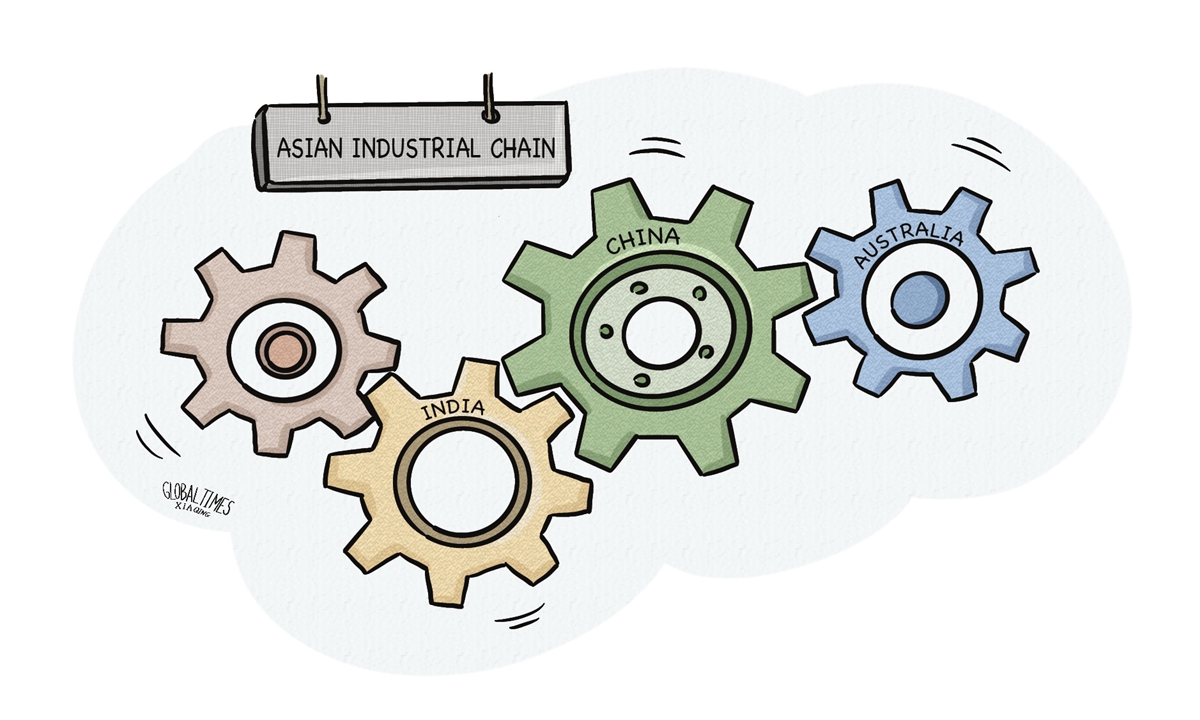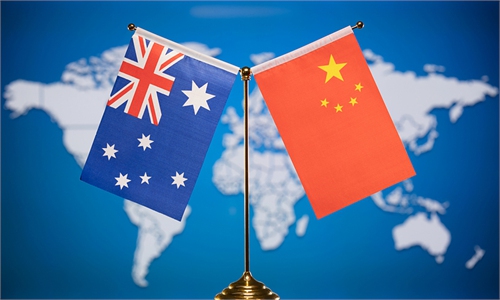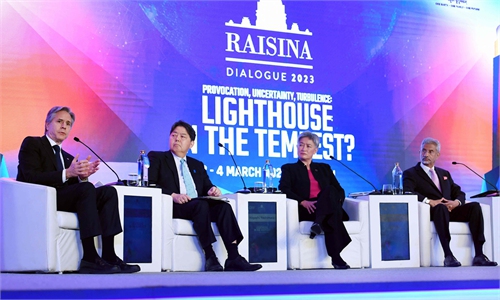
Illustration: Xia Qing/Global Times
Australian Prime Minister Anthony Albanese is set to pay a four-day visit to India starting from Wednesday with an aim to boost overall bilateral engagement in a range of areas including trade, investment and critical minerals, Indian news agency PTI reported. It seems that India-Australia relations are now in a sweet spot, which hopefully will become a facilitator rather than a barrier to inter-Asia trade, and can help Australia further integrate itself into Asian industrial chains.Asia is one of the most dynamic and fastest growing regions in the world, so further involving itself into Asia's industrial chains will bring tangible benefits to Australia's economy. Although Australia is used to seeing itself as a member of the Western camp, acting as a US ally over political issues, if Australia wants to enjoy dividends from Asia's future economic growth, Canberra must handle economic relations well with Asian countries, especially with the two Asian giants - China and India.
The Australian business community has been eagerly awaiting a boost in bilateral ties with China. The two countries are important players in the Asia-Pacific region, and their bilateral ties have important impacts on the two countries and the wider region, as well as the Asia-Pacific industrial chains.
By the same token, sound and stable economic relations between Australia and India can also promote intraregional trade and investment, so as to consolidate the trade, industrial and supply chain in the whole region.
As China tries to move up the value chain, some low-end manufacturers are shifting production to India and other Asian countries. That's normal and China seems to have no intention of interfering in this process. This creates space for China and India to further expand mutually beneficial cooperation in trade and economy.
India's shift to an export-oriented manufacturing base is likely to result in increased demand for some critical minerals from Australia. It's natural that Australia develops its relations with India, which is also an important player in Asia's industrial chains.
As bilateral relations between Australia and India are showing signs of improving, some Western media outlets are focused mainly on explaining today's situation from the perspective of geopolitics. Such actions result in a more complex situation, with the boundary between political and economic issues becoming blurred.
In another sign of the close relationship between India and Australia, Indian external affairs minister Subrahmanyam Jaishankar met his Australian counterpart Penny Wong in Sydney in February, according to media reports.
A Diplomat magazine report claimed that the transformational shifts in the bilateral engagements come against the backdrop of the rapidly changing geopolitical equations in the Asia-Pacific region.
"China's rise and its strategic consequences have brought New Delhi and Canberra closer because both countries have been dealing with a more belligerent China despite their strong economic linkages with Beijing," the report said. Recently, Western media and politicians seem to have hyped up a new round of the "China threat" theory from the field of politics, security, economy to technological progress.
A close relationship between India and Australia should become a facilitator rather than a barrier to promote intraregional trade and investment, but some Westerners try to use China as an imaginary enemy to encourage India and Australia to stand together at the frontline of the US' Indo-Pacific Strategy.
As India and Australia try to deepen practical cooperation, those Westerners are trying to push it in a direction that serves Western interests and isolates China in the Asia-Pacific region, but such efforts go against the interests of most Asia-Pacific economies including India and Australia and will disrupt regional industrial and supply chains.
China has evolved into the centre of regional production chains. The country has a complete industrial chain, well-developed logistics and supporting systems, and is increasingly becoming an innovation force to be reckoned with. No matter how India-Australia relationship develops, if the two countries want to further integrate them into Asia's industrial chains, it will be important for them to properly handle economic issues relating to China.
The author is a reporter with the Global Times. bizopinion@globaltimes.com.cn



